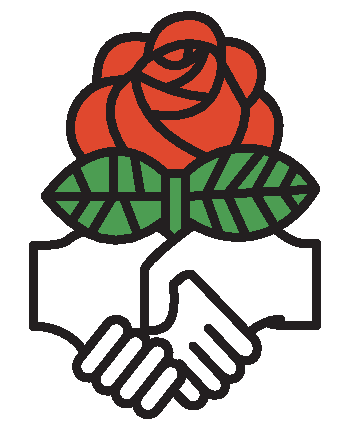The Global Crisis and its Impact on the Poor – the Perspective of Women for a Fair Solution
Paris, France, 12 and 13 November 2010
Resolution
The global situation has been changing over the past years due to several economic and political developments. The current crisis, that started as a financial one and quickly escalated into an economic and social one, has not only put pressure on regulating our financial markets, but also on defining a new socio-economic development model that puts employment and growth at its heart. While budgetary cuts are on the agenda as a way out of the crisis, austerity measures of right wing governments are presented as the only solution to recovery – even when they lead to bigger social exclusion and growing inequalities, such as poverty and unemployment, which are to be expensive in the long term.
In countries with a strong capitalist model, the crisis first hit the financial sector, and most sectors in which men were predominantly employed and thus first hit by the crisis. But the second wave of the crisis affected outsourcing services based on temporary and/or shorter contracts, which are always more vulnerable and unstable in times of crisis. This second wave of unemployment and long-term consequences of the crisis affects mostly women, as 80% of these threatened jobs are occupied by them and the public service is still female dominated. As a consequence, many women are left now with little or no social and economic security.
The crisis threatens not only unemployed women, but also all those who manage to keep their jobs and who are working in poor conditions (precarious employment). The majority of these workers are also women. Women in the formal and in the informal sectors are also disproportionally affected by the impact of the crisis. For most of those who can keep their jobs, the working conditions will get worse.
Poverty still carries a female face everywhere in the world, even in developed countries, where the gender pay gap and the gender pension gap encourages the trend of perpetuating poverty among women.
The consequence of the cuts in public social expenditures is a reduction in social services, also for the basic services. This increases the unpaid care-work of women both in developed and developing countries.
The crisis aggravates further women’s situation, especially the situation of women threatened by multiple discriminations (particularly migrant women, single mothers, low-educated women, illiterate women, indigenous women, women living in rural areas and lesbians and transsexual women). Their deprivation of fair and equal access to employment, support and education, may accelerate further as popular aspiration for well-known traditional models, stereotypes and for “order” intensifies. A conservative backlash in women’s rights is an imminent danger.
Migrant women are more likely to lose their jobs and risk expulsions from countries where they work; the consequences are multiple including the reduction of remittances towards the countries of origin. Further negative consequences on families and on national GDPs in countries of origin are also likely. Not only does this put pressure on the economic development of the countries of origin but also on the social fabric of society and on family responsibilities. The likely result is an increase of violence against women and girls.
Never before have the livelihoods of so many people in the world’s poorest countries been so directly affected by circumstances caused by the richest countries. In addition to the economic crisis, the world’s poorest countries are the most threatened by other crises as well: food crisis, exploitation of natural resources, environmental problems such as water, air and soil pollution, shortage in energy supplies and climate change.
The response to the global crisis at the moment is mainly financial and does not propose sufficient change in the model of development and economic governance, responses simply address the symptoms and not the deep causes of the crisis; analysis of the failure of the present model of development is insufficient, while the establishment of a new, fair development model requires the proper analysis of the one that led to this crisis;
the gender-impact assessment of the crisis or of the austerity measures are not carried out, and thus the social consequences of the crisis on women are inadequately addressed both in rich and poor countries;
solidarity towards developing countries decreases, worsening the situation of women and making the implementation of the Millennium Development Goals impossible;
the protection and the promotion of women’s rights is not considered among the crisis management tools, quite on the contrary: stereotypes are reinforced.
The Socialist International Women therefore urges governments, in particular those lead by Socialist and Progressive forces, and all Member Parties of the Socialist International to:
propose an alternative model of development, in order to create a more inclusive, more accountable and a more democratic international system;
push for a sound economic governance that is for the benefit of all people and that goes beyond the sole financial mechanisms;
introduce a financial transaction tax in order to redistribute wealth, and use it for the reduction of inequalities between the rich and the poor, the developed and the developing; and use it for the reduction of social inequalities, including gender inequalities on the national level;
recognise a human rights-based approach in all policies, because the crisis must not be an excuse for ignoring human rights;
fight against the violation of human rights and progressive achievements, in particular women’s rights in the name of traditionalism;
introduce gender mainstreaming in all policies as a horizontal method, including in budgeting;
recognise gender equality as a driving force for social and economic development: women are not passive subjects, but also actors in defining and implementing macroeconomic policies and in creating wealth;
implement gender equality in the framework of the Millennium Development Goals;
not reduce aid given to developing and poor countries, and acknowledge that a current reduction will cost a lot more later;
encourage women’s access to land, water, income, energy and capital, and to financial resources as a whole;
ensure women’s access to paid work and salaries that ensure women’s economic independence now and in the future;
address the precarious situation of the working poor and
pay special attention to the most vulnerable women threatened by multiple discriminations.

